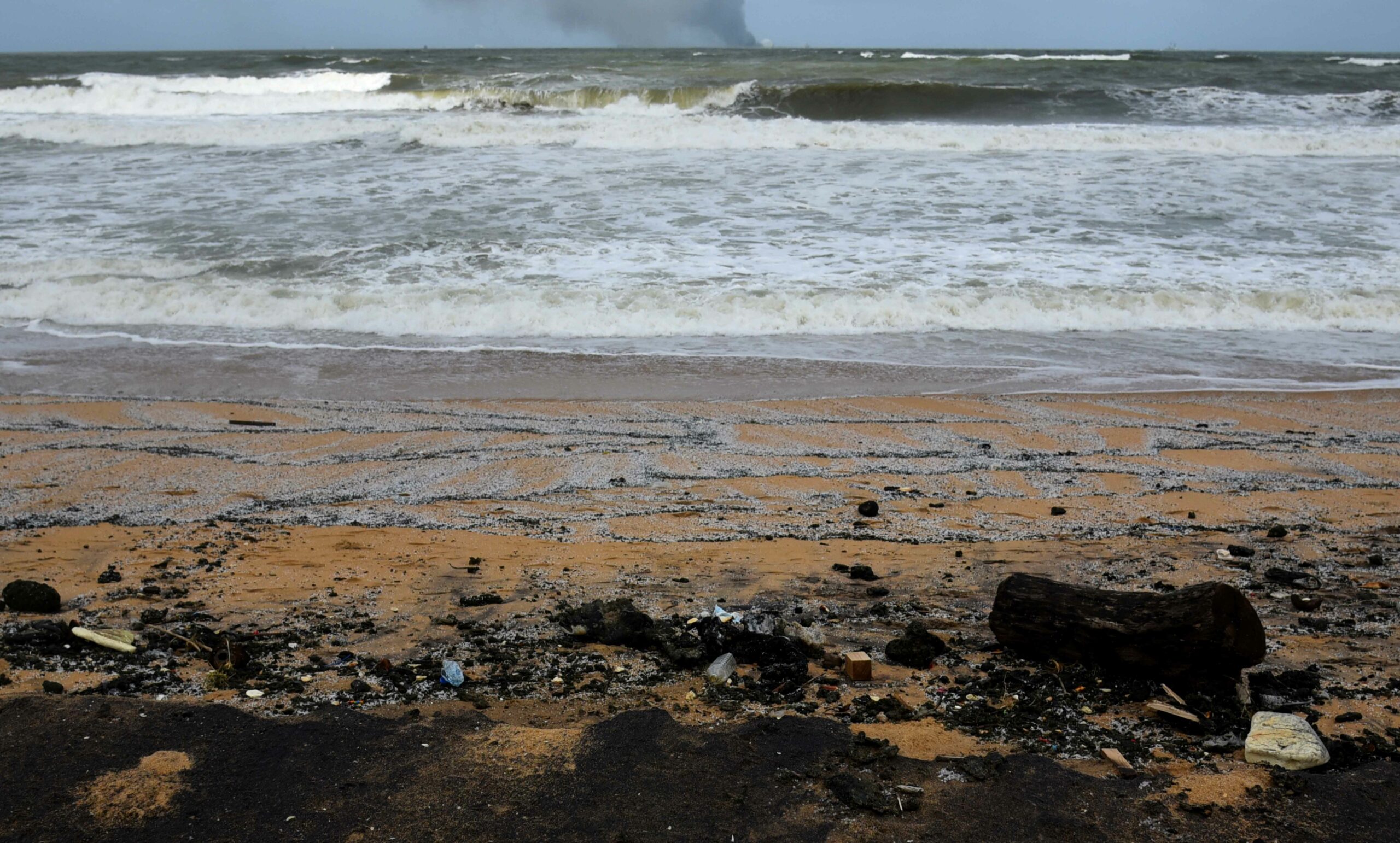Among a long list of topics for debate at next week’s 77th gathering of the Marine Environment Protection Committee (MEPC) at the International Maritime Organization (IMO), Sri Lanka and a number of NGOs are pushing to get plastic pellets reclassified as hazardous substances in the wake of this year’s X-Press Pearl disaster.
On May 25 the burning Singapore-flagged boxship X-Press Pearl spilt 1,680 tonnes of plastic pellets, 9,700 tonnes of other plastics and toxic pollutants nine miles off the Sri Lankan coast. With plastic accumulating on many kilometres of beaches, the X-Press Pearl became the worst marine environmental disaster in Sri Lanka’s history, and the single largest plastic pellet pollution event the world has ever seen. Latest reports suggest around one third of the spilt plastic pallets have been gathered by clean-up teams to date.
Similar plastic pellet marine accidents have been recorded off Hong Kong, South Africa and in the North Sea over the past decade.
Christina Dixon, deputy ocean campaign Leader from the NGO Environmental Investigation Agency (EIA) commented: “Although plastics from sea-based sources account for roughly 20% of plastic pollution, the pace of action to prevent plastic pollution from ships at the international level is sorely lacking.
Shanghai Salvage along with Resolve Marine have recently been appointed to remove the wreck of the burnt boxship which lies in shallow waters off Sri Lanka.
Author Sam Chamber
Photo: Ruwan Walpola / Shutterstock.com


